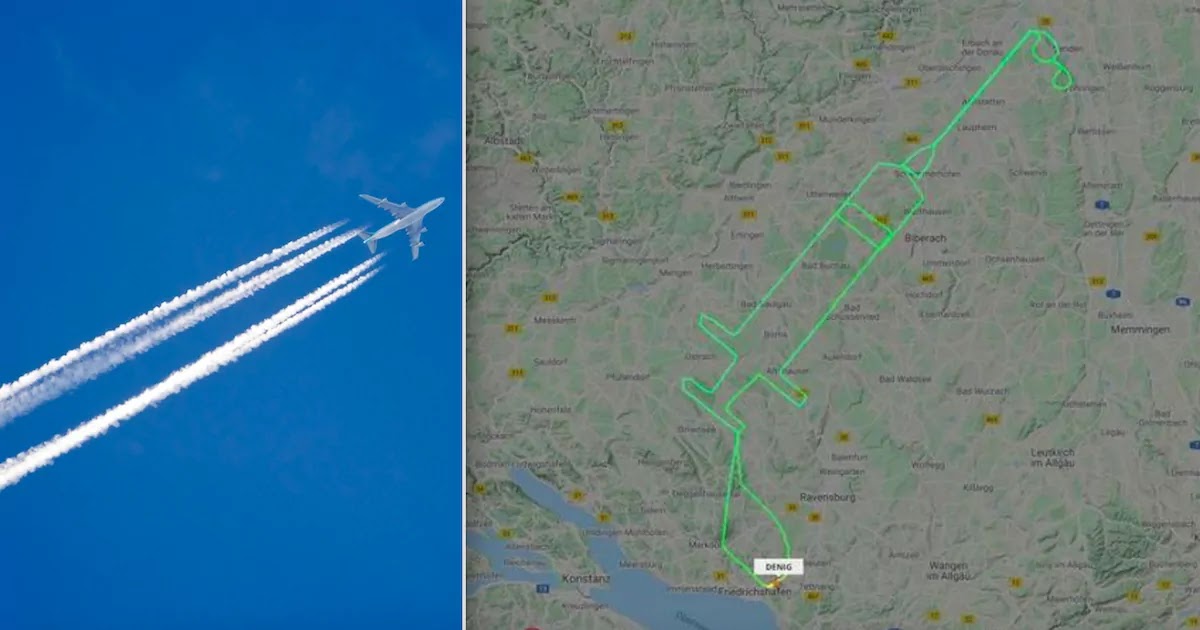
A German pilot has traced the outline of a syringe in the sky to bring public attention to the new Covid-19 vaccination program. The syringe was traced out on a flight-map by German pilot Samy Kramer who flew over 200kms in a carefully mapped out manoeuvre.
Prior to the flight, Kramer who is only 20-years-old, first plotted the route using a GPS tracker and then painstakingly ensured his flight followed the same route. The result was that on the fly tracking website 'flightradar24' a neon-green syringe appeared.
Kramer then told news agency Reuters that much of his incentive in taking the action was to undermine the voice of so-called anti-vaxxers, people who oppose vaccinations based on false information and unfounded conspiracy theories. He said:
"There are still relatively many people opposing the vaccination and my action may be a reminder for them to think about the topic, to get things moving. Perhaps it was also a bit of a sign of joy, because the aviation industry has been hit pretty hard by the pandemic."
Europe's vaccination campaign began on the 27th of December using the Pfizer vaccine, which has been shown in trails to have a 90% efficacy, meaning that it stops 90% of those vaccinated from being infected by the disease if exposed. The yearly flu vaccine has an efficacy of around 60%.
The United Kingdom started its vaccination campaign last month and several hundred thousand people have already received the jab. Governments in the United Kingdom, United States and the European Union have decided to prioritise those deemed most vulnerable to receive the jab first.
This means that healthcare workers, the elderly, including those living in care-homes and elderly living-facilities, and those with particular medical conditions that make Covid-19 a serious threat to their health, will all receive the vaccine first. The vaccine will only then be rolled out to the rest of the population, with younger members of the population receiving the jab last.
The UK is expected to approve the use of the Oxford AstraZeneca vaccine in early January. Unlike the Pfizer vaccine, which must be stored in extremely cold deep-freezers, the Oxford vaccine can be transported far more easily and, therefore, the logistics of a mass rollout will also pose fewer challenges.
Since the beginning of the pandemic, and over the last few decades, a number of people have begun to claim, without good reason, that vaccines are dangerous and should not be administered. Since the outbreak of the pandemic, a large minority across the world have thus far stated that they will refuse the vaccine. A recent study looking at confidence in a Covid-19 vaccine found that within Europe, France had the lowest level of support, with just 59% saying they would definitely get the vaccine. The number of people in the UK stating they would receive a vaccine is 71%, while in the US it is 75%. Brazil had the highest support for vaccines at 88%, possibly as a result of the population being able to remember a time prior to mass-vaccination where many were killed or crippled by diseases such as measles and polio.













COMMENTS